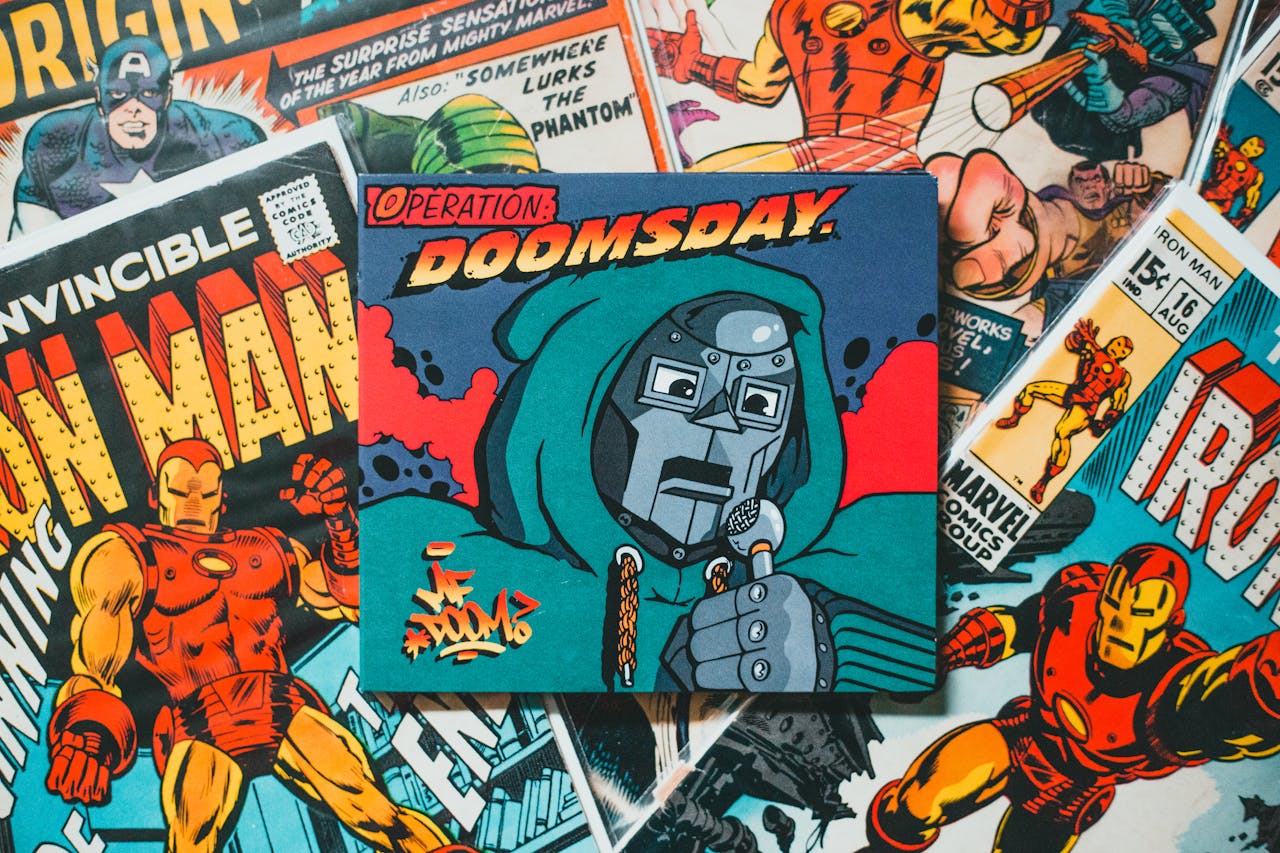|
IN BRIEF
|
In the vibrant tapestry of modern pop culture, few threads are as colorful and influential as that of comic books. These illustrated narratives have transcended their humble origins, not merely entertaining countless readers but boldly shaping myriad aspects of our cultural landscape. From blockbuster movies and popular television shows to the latest trends in fashion and music, the impact of comics is undeniable. They serve as a powerful mirror, reflecting societal values, challenges, and the changing dynamics of representation, all while addressing complex social issues like racism and discrimination. As we delve deeper into the epic journey of comics, it becomes clear that their legacy is not just about heroes and villains but about the very essence of who we are and aspire to be.
The impact of comic books on modern pop culture is both multifaceted and profound. For decades, these illustrated narratives have served as a powerful medium that reflects societal values, challenges cultural norms, and provides a platform for artistic innovation. This interconnection shapes not only the entertainment landscape but also influences social discourse and representation.
The Future of Comics and Pop Culture
As technology continues to evolve, so does the landscape of comic books and their influence on pop culture. The ongoing integration of augmented reality and interactive storytelling may revolutionize how comics are consumed, making the medium even more dynamic and engaging.
With an ever-growing fan base and increasing recognition of the cultural significance of comics, it is clear that their role within the fabric of modern society will only expand. The dialogue surrounding comics and their influence opens up possibilities for creative collaboration and innovation in pop culture, further solidifying their importance in contemporary storytelling.
The understanding of various genres has also become vital as they continue to evolve. Readers now have resources to dive into specific types of comics, enhancing their appreciation for the intricate storytelling involved across different styles.
In light of these various influences, it’s equally crucial for enthusiasts to know where to acquire their favorite comics. Accessing the right platforms, as detailed in this comprehensive guide, can significantly impact how the experience unfolds altogether. The relationship between readers and vendors plays a vital role in shaping comic culture.
Lastly, the preservation of comic books is an ongoing concern for collectors and fans. Understanding how to maintain these valuable pieces is essential for ensuring their longevity, which is explored in this guide on preservation. This element highlights the commitment fans have in preserving the history and significance of the medium, ensuring future generations can enjoy these treasures.
The emerging interest in learning how to create comics is another exciting aspect. Resources such as step-by-step guides for aspiring comic book artists are paving the way for a new generation of creators to enter the field, further enriching the future of comic storytelling.
The landmark distinction of first edition comics continues to intrigue collectors, making the familiarity with identification crucial. Engaging with the guide on identifying first editions allows fans to appreciate the history behind their favorite comics and understand their value in popular culture.
The Impact on Television
Television has also witnessed a surge in comic book-related content. Series like “Arrow” and “The Flash” bring forth beloved characters from the pages to living rooms across America and beyond. Through episodic storytelling, television adaptations expand the universe of comic book characters, allowing for deeper character development and new plots that attract devoted fanbases.
The influence of comic books on modern pop culture is undeniable, as these vibrant narratives have permeated various forms of entertainment. Over the past several decades, comics have evolved beyond mere pages to shape groundbreaking movies, TV series, and even video games. For instance, in 2021 alone, superhero films based on comic book characters grossed over $13 billion globally, marking their dominance in the box office.
Moreover, comic books have served as a platform for addressing pressing social issues, ranging from racism to gender inequality. This unique ability to intertwine entertainment with advocacy has cultivated a loyal fanbase and sparked critical conversations. A notable example is how recent graphic novels have amplified diverse voices, reflecting a broader spectrum of identities in society.
In parallel, comic books have significantly influenced advertising strategies. Brands increasingly collaborate with comic creators to craft memorable marketing campaigns, merging their narratives with pop culture references. Ultimately, it’s evident that comic books are not just sidelines of entertainment; they are pivotal in shaping societal norms and cultural dialogues today. For additional insights into the impact of comics, visit Nairobi Wire.
Comic books have played a pivotal role in shaping modern pop culture, acting as a lens through which we explore societal values and issues. From superheroes that inspire aspiration to narratives that tackle real-world issues, comic books have transcended their entertainment roots to become crucial cultural artifacts. They reflect our diversity and offer representation that was historically ignored, thereby fostering a greater understanding of different perspectives. Furthermore, the expansion into various media—films, series, and even art—has cemented their cultural significance. As they continue to evolve alongside society, comic books remain a durable influence on art, social norms, and global conversations.
FAQ
What role do comic books play in shaping modern pop culture?
R: Comic books have played a significant role in shaping modern pop culture by influencing various forms of entertainment such as movies, television shows, music, and fashion. They serve as a foundation for many narratives and character development that resonate with audiences today.
How do comic books reflect societal issues?
R: Comic books often address real-world social and cultural issues, including racism, discrimination, and political events. They provide a platform for discussion and awareness, reflecting the challenges and complexities of society.
In what ways have comic books promoted diversity?
R: Graphic novels and comic books have increasingly introduced characters and stories that promote diversity and representation. This shift allows different perspectives and experiences to be shared, making the medium more inclusive and relatable to a wider audience.
Can comic books influence trends in other art forms?
R: Yes, comic books have the power to influence trends across various art forms, including art styles, storytelling techniques, and character archetypes. Their unique blend of visual and narrative elements has inspired artists, filmmakers, and musicians alike.
What is the impact of comic book conventions on pop culture?
R: Comic conventions, such as Comic Con, play a vital role in the pop culture landscape by bringing together fans, creators, and industry professionals. These events not only celebrate comic books but also promote the exchange of ideas and foster a sense of community among enthusiasts.

